Chapter 14: Such Father Such Son
Despite Echemenes victory the crisis is far from over. Antiochus still has numerous armies near Kilika and in Phoinike Helenos was still under siege. The actual amry besieging Sidon was not a large nor elite one, but great reinforcements were marching to its aid. Some might argue that it was due to the need for haste that Helenos sallied so quickly, but more likely is that Sidon´s wine supply had simply run out after the soldiers ruling on Kypros had decided to their wine to themselves and the Phoinike winegardens had been plundered.
At any case, a battle soon began. Helenos still commanded the same soldiers as during the last battle for Sidon, Galatikoi mercenaries and levy spearmen. Antiochus army consisted of allied contigents from Ioudaia, worshippers of a single god (wierdos) and Peltastai from Makedonian colonies.
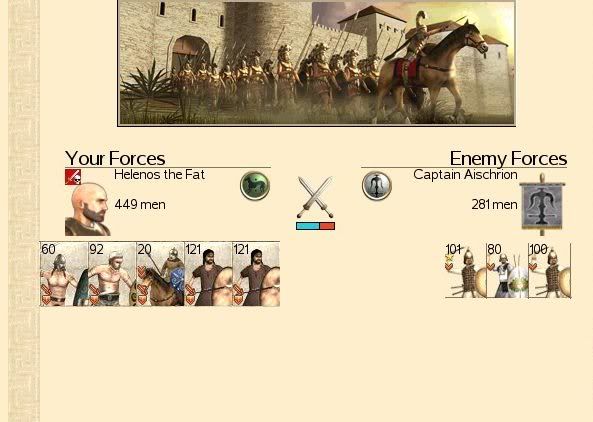
Greatly outnumbering the enemy Helenos army is confident of victory, but still nervous over the rumours of Seleukids reinforcements that might be a hundred miles away or hiding behind the nearest hill.

Helenos and his heavy cavalry exits the city first, the army just behind. The enemy withdraw to a better position, but it will do them little good.


Just as the enemy Peltasati have managed to get into position infront of the Ioudaioi the cavalry charges, Helenos in the first line.

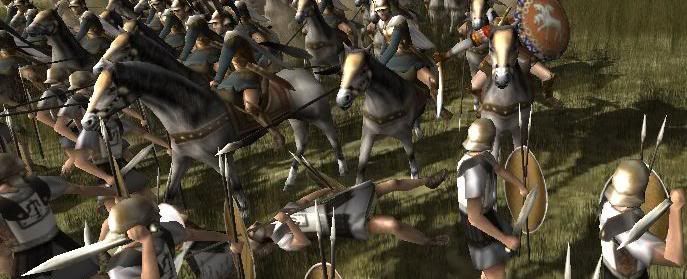
They deal massive damage to the Peltastai, and withdraw before the Ioudaioi can react.
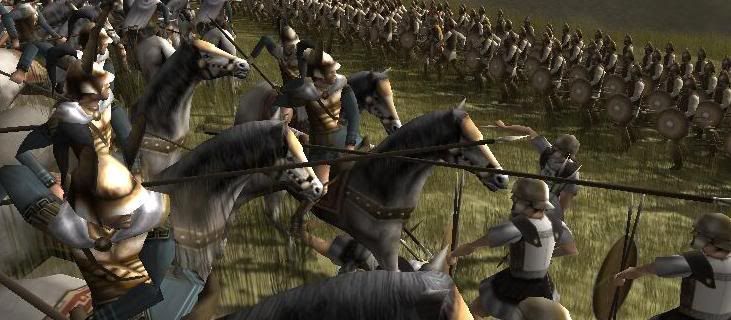

Some javelins are thrown after the cavalry, and one man, one of Helenos closest drinking companions, is struck and falls of his horse.
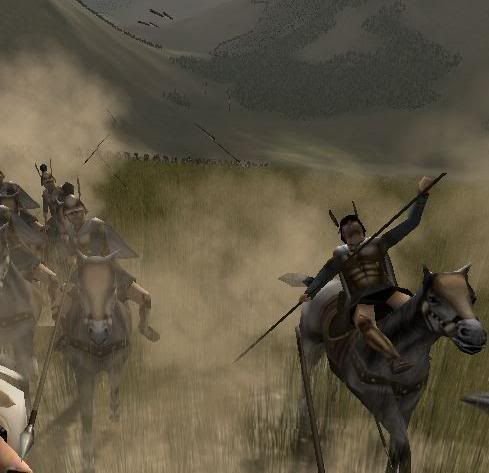
Enraged Helenos charges again, his men following him, and this time they fight ´till the Peltastai flee or die.
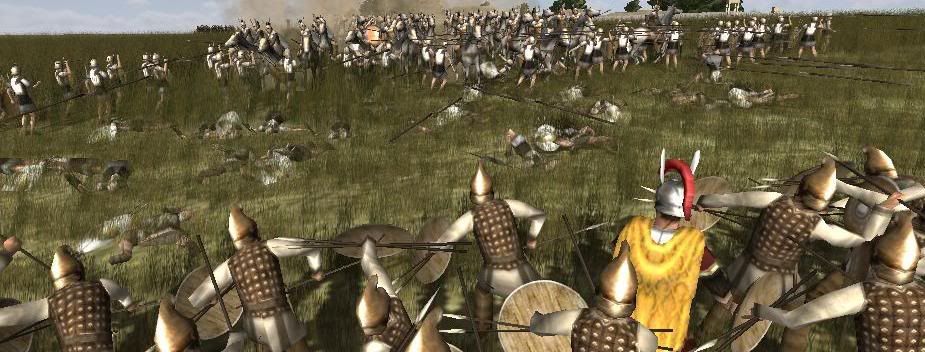
Strangely the Ioudaioi just stand idely and watch as their comrades are slaughtered, perhaps there are some hostilities between the Ioudaioi and the rest of Antiochus subjects? At any case, the Peltastai are slaugheted until the final few men flee in terror and Helenos retreats again.
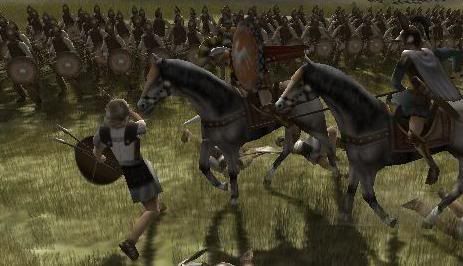
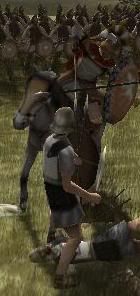


By now the rest of Helenos army has moved into position and begins bombarding the Ioudaioi with javelins.

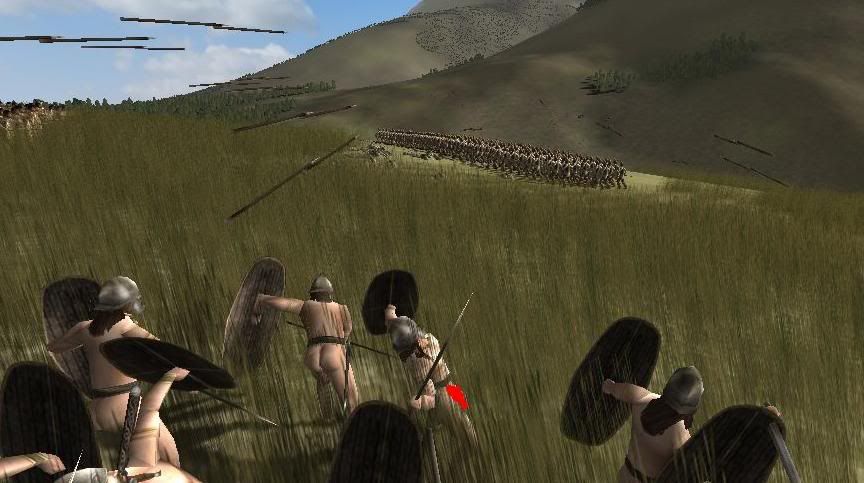
All the levy spearmen, Galatikoi and cavalry now charged the Ioudaioi from all sides.
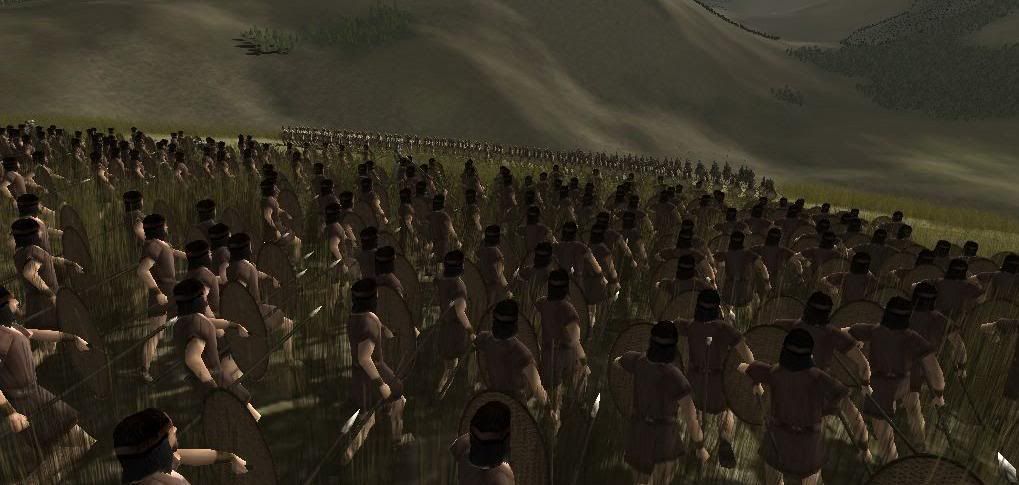
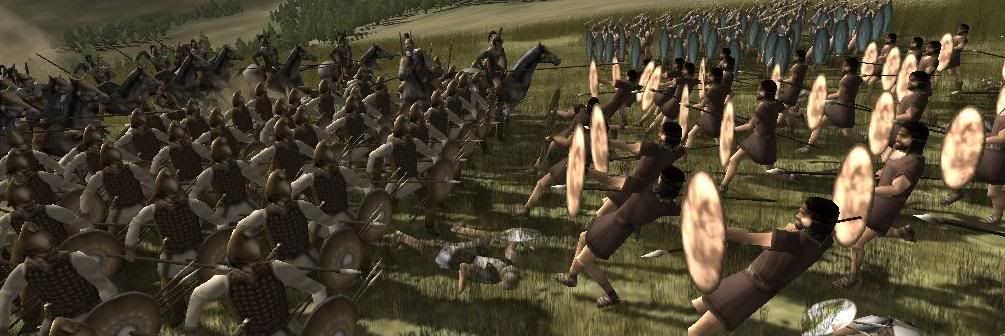

The battle was short but ferocious.

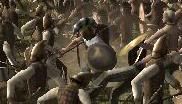
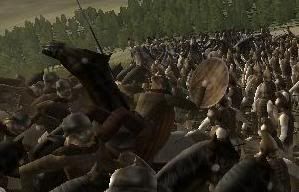
The slaugher was immense, the Ioudaioi fell in scores as the screams of the dying mixed with the clash of weapons.
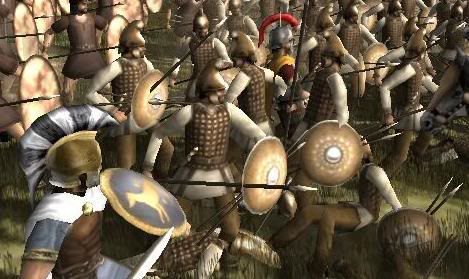

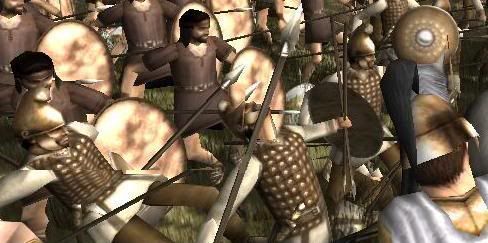
The pressure became to much and the few Ioudaioi alive fled, only to be hunted down and killed.

Victory had been achieved.
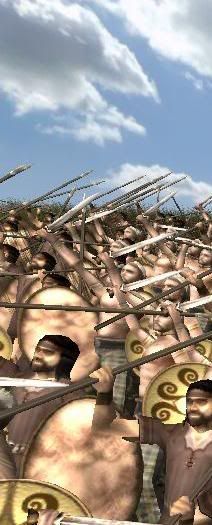
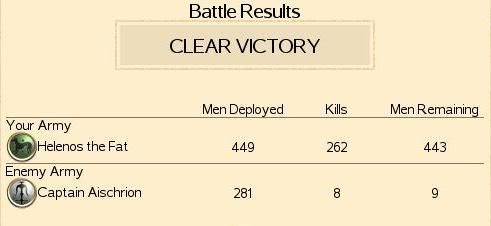
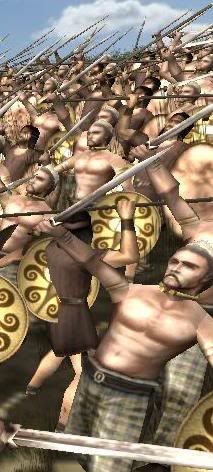
There was no time for celebrations though, as Antiochus armies were approaching with speed. With no chance of defending their position, Helenos and his advisors took the decision to flee from the city togheter with the army. But while the advisors argued that they should board the ships in the harbour and sail for Kypros, Helenos had a greater plan in mind, a plan that if it suceeded would make him as legendary as his father.
As winter came Helenos ordered the army to tear down the city and burn the crops, and then marched east with it, narrowly escaping the pursuing Seleukids.
Marching past Mount Lebanon and the tributaries of the River Jordan the army arrived at the gates of Damaskus, where the startled garrison closed the gates and called for help.
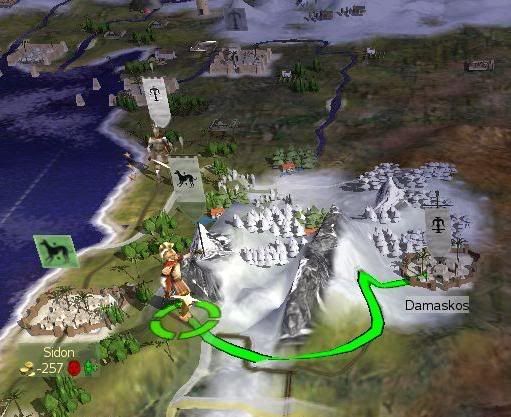
The reinforcements were still busy in Phoinike where the people of Tyre had refused to open their gates and the city of Karkhedon declared their support for liberty of their ancestral home
Helenos army began the building of siege engines as they prepared for the assault.

Next chapter: No fricking idea




 Reply With Quote
Reply With Quote .
.










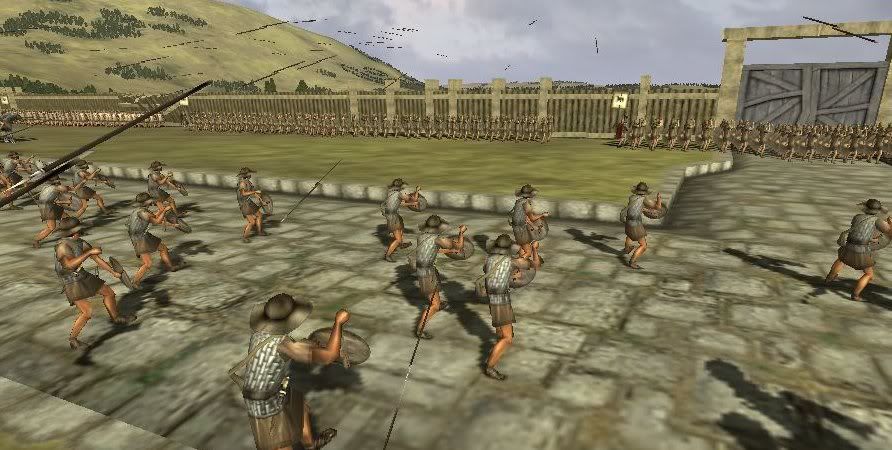
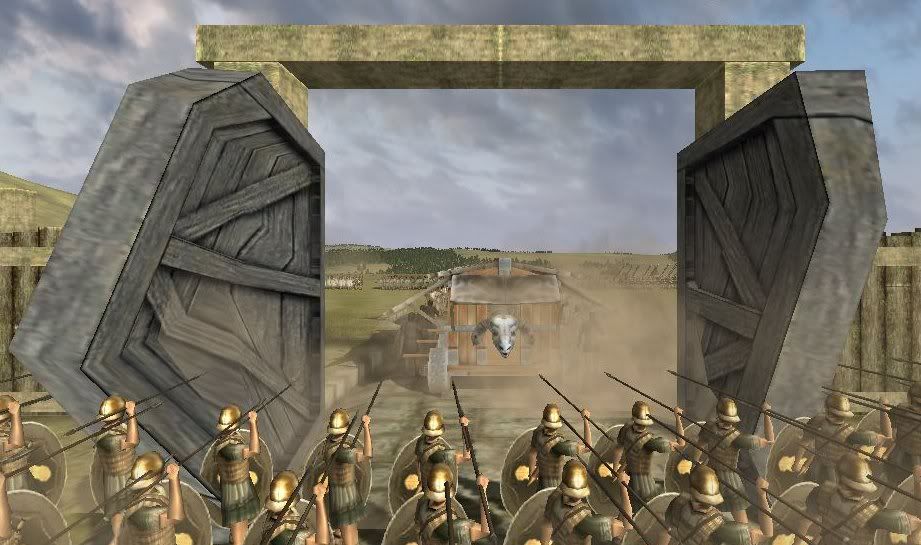
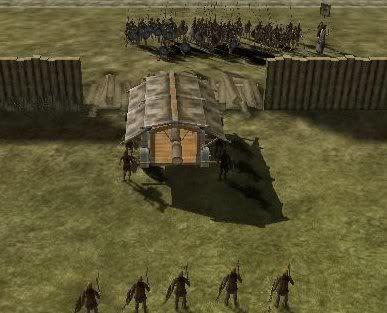
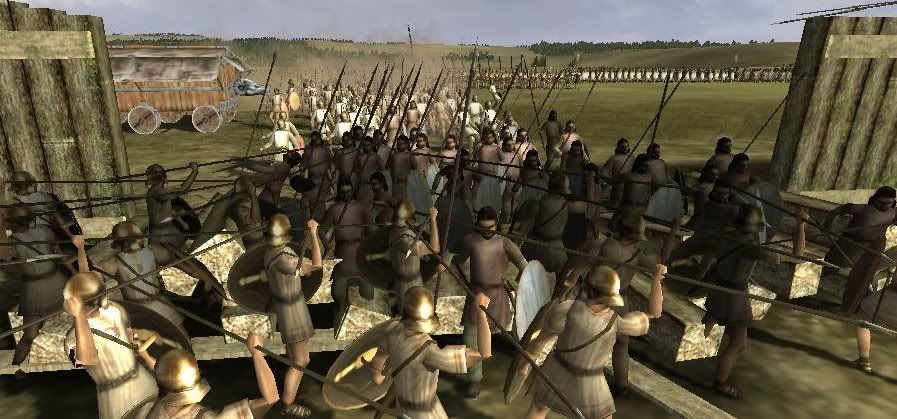
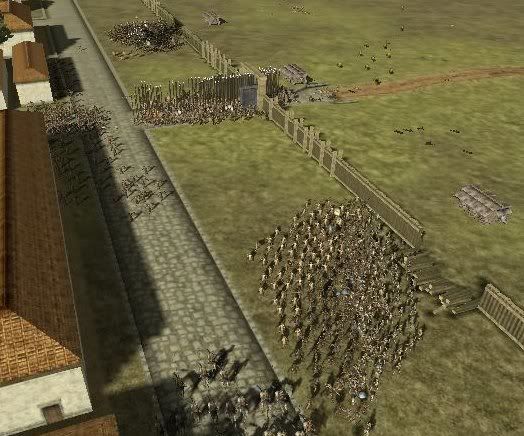
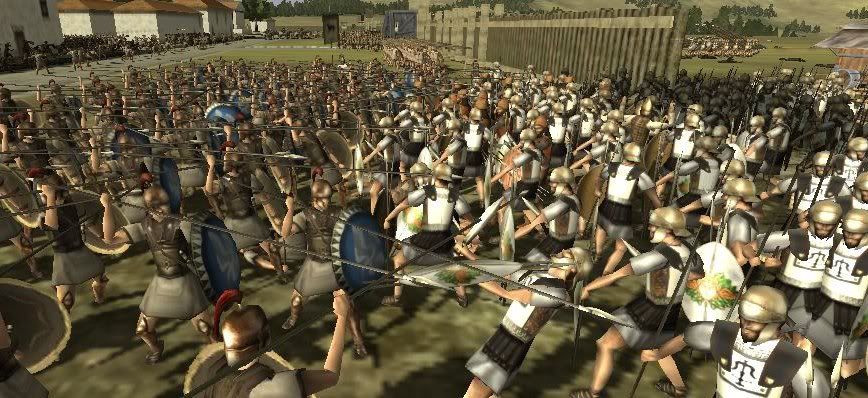


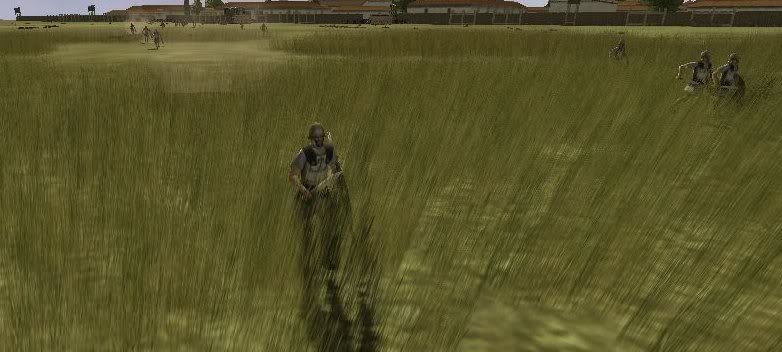


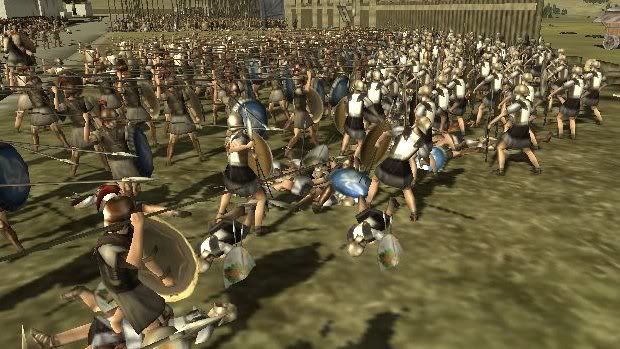

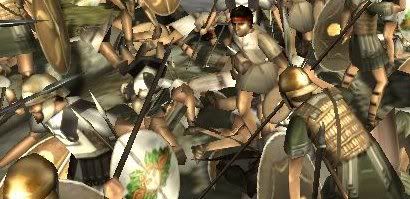
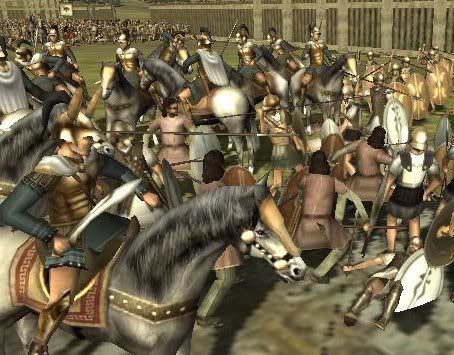
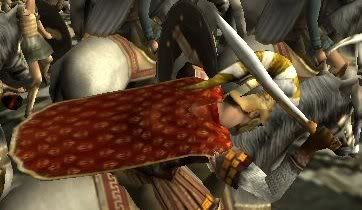

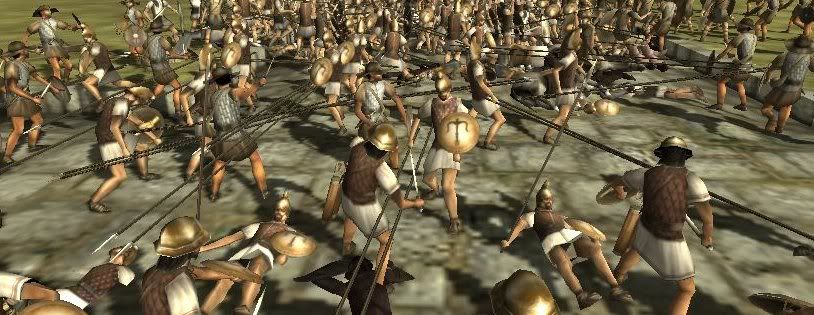



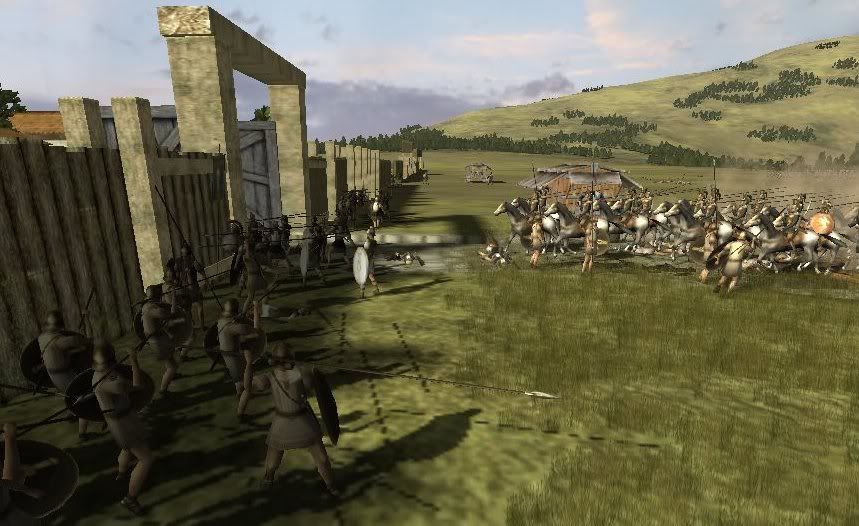
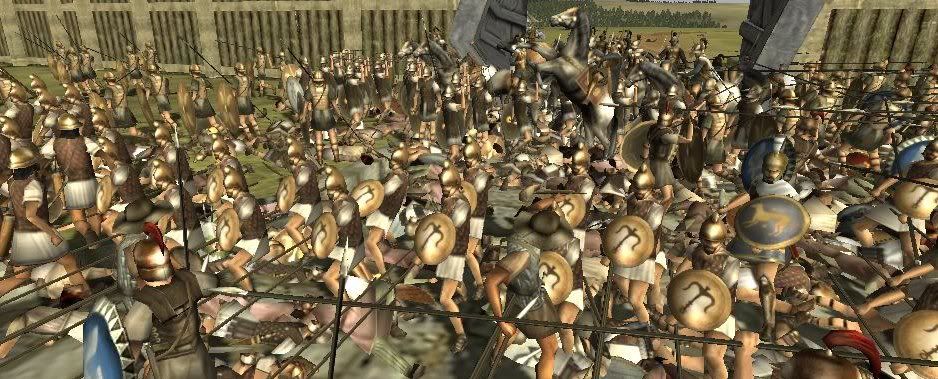




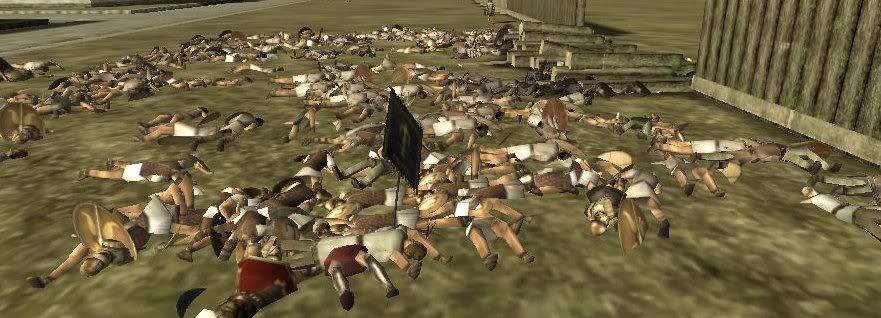
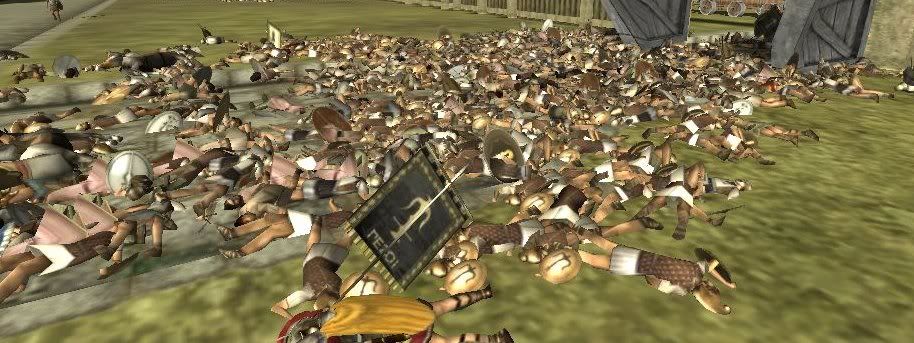





































 ....but at least you now have a self-destructing army running behind enemy lines
....but at least you now have a self-destructing army running behind enemy lines
 that way you can at least hurt them and keep making money....
that way you can at least hurt them and keep making money....


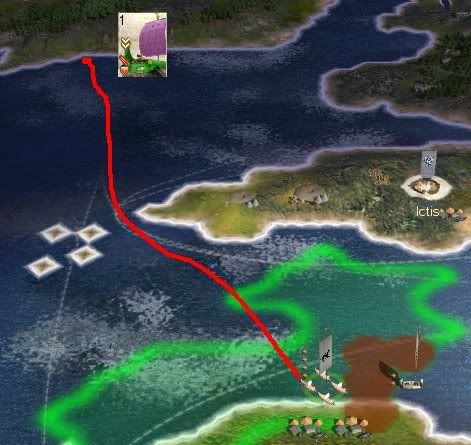

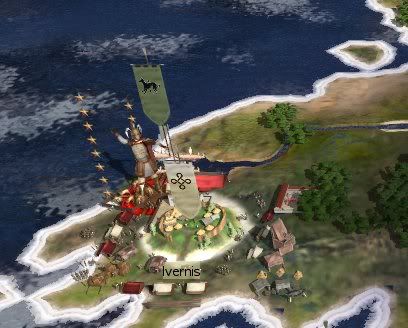







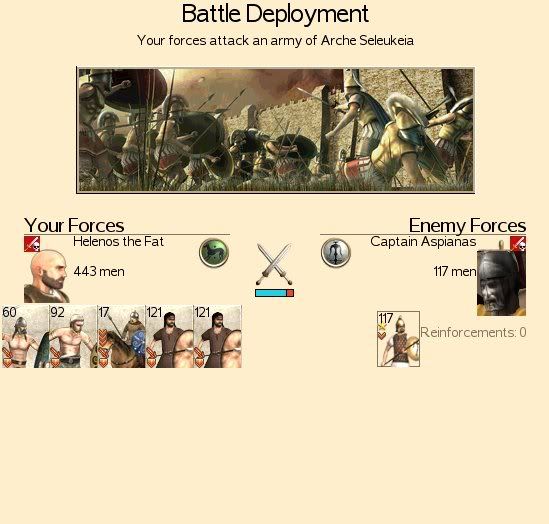
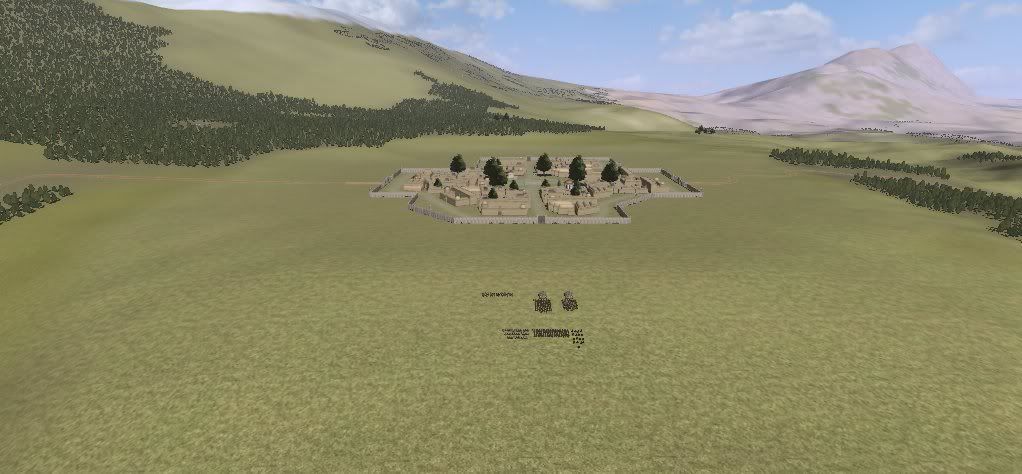



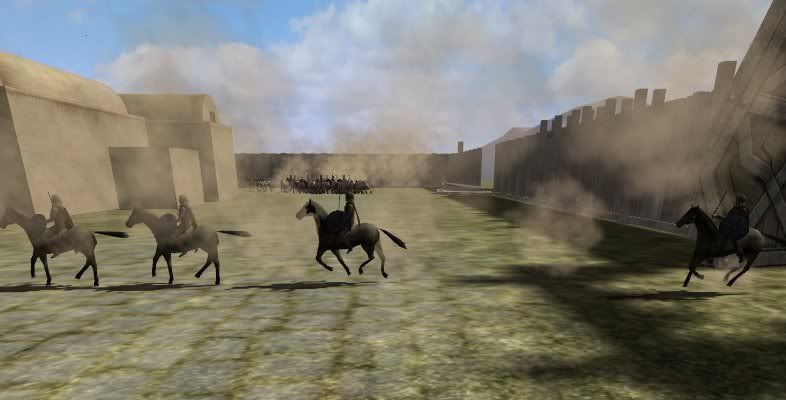
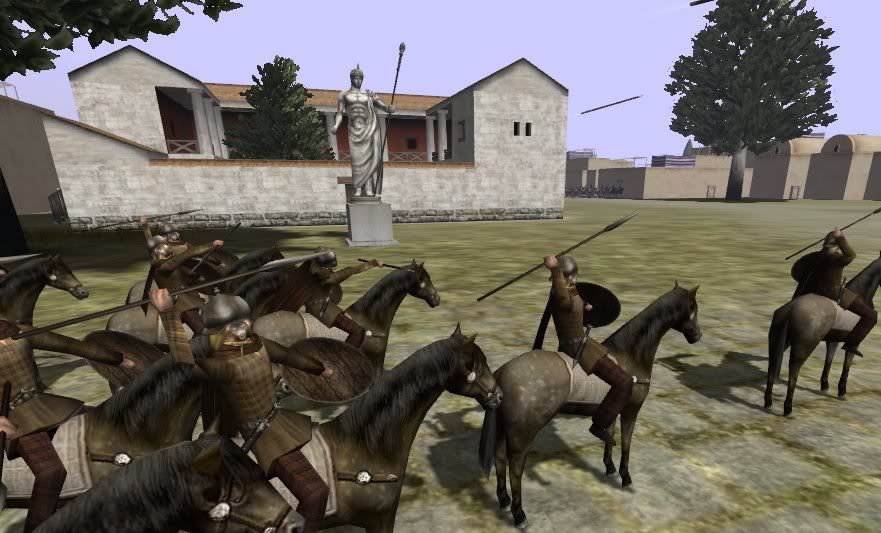
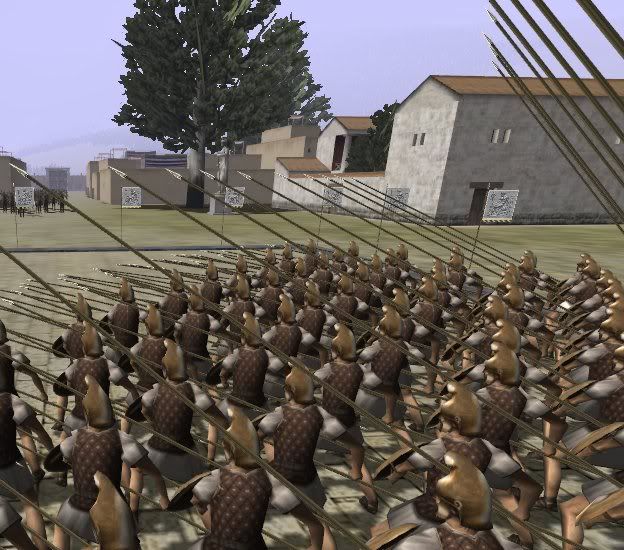
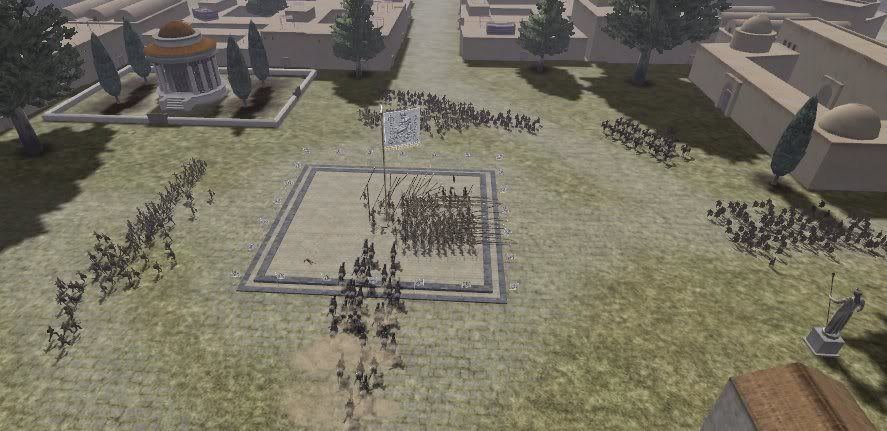
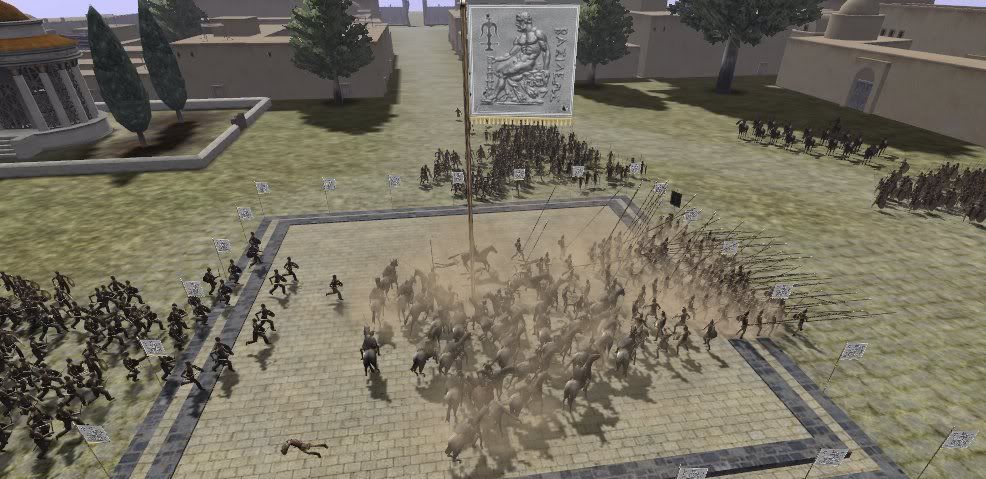
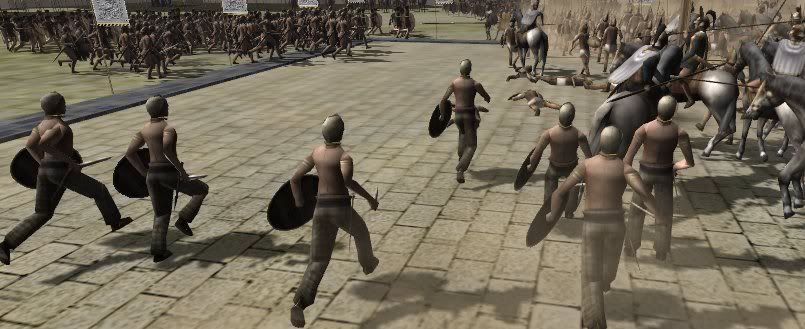


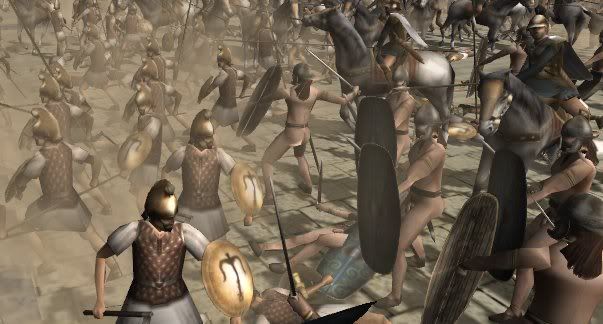

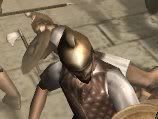
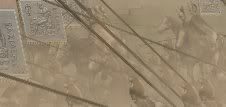


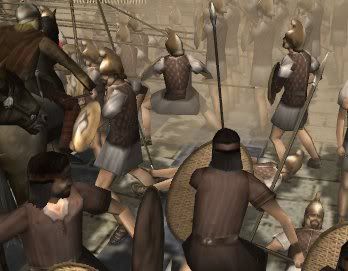
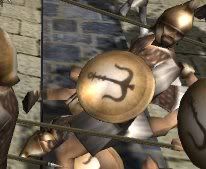
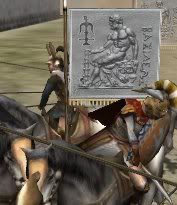

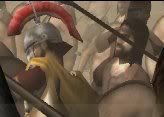
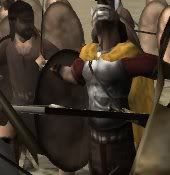



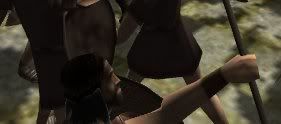


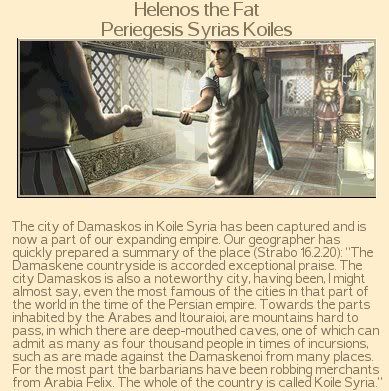
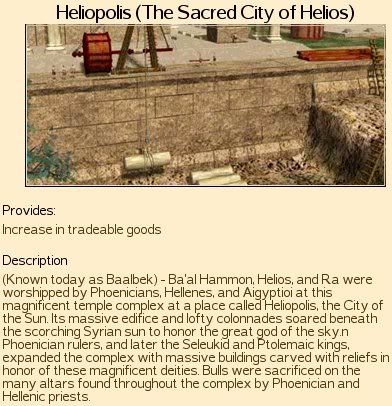
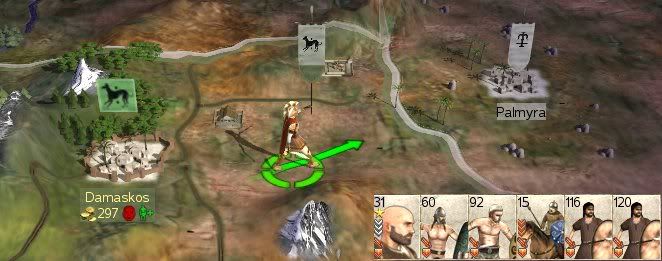
 from Satalexton
from Satalexton 

Bookmarks